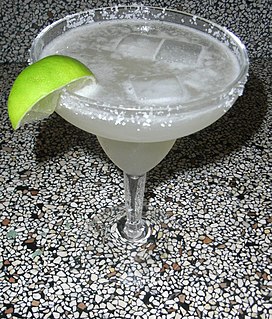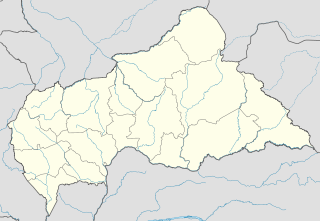
A cocktail is an alcoholic mixed drink, which is either a combination of spirits, or one or more spirits mixed with other ingredients such as fruit juice, flavored syrup, or cream. There are various types of cocktails, based on the number and kind of ingredients added. The origins of the cocktail are debated.

A Manhattan is a cocktail made with whiskey, sweet vermouth, and bitters. While rye is the traditional whiskey of choice, other commonly used whiskies include Canadian whisky, bourbon, blended whiskey, and Tennessee whiskey. The cocktail is usually stirred then strained into a cocktail glass and garnished traditionally with a maraschino cherry. A Manhattan may also be served on the rocks in a lowball glass.

Mojito is a traditional Cuban highball. Traditionally, a mojito is a cocktail that consists of five ingredients: white rum, sugar, lime juice, soda water, and mint. Its combination of sweetness, citrus, and herbaceous mint flavors is intended to complement the rum, and has made the mojito a popular summer drink.

A Molotov cocktail, also known as a petrol bomb, gasoline bomb, bottle bomb, poor man's grenade, fire bomb, fire bottle or just Molotov, sometimes shortened as Molly, is a generic name used for a variety of bottle-based improvised incendiary weapons.

A margarita is a cocktail consisting of tequila, orange liqueur, and lime juice often served with salt on the rim of the glass. The drink is served shaken with ice, blended with ice, or without ice. Although it has become acceptable to serve a margarita in a wide variety of glass types, ranging from cocktail and wine glasses to pint glasses and even large schooners, the drink is traditionally served in the eponymous margarita glass, a stepped-diameter variant of a cocktail glass or champagne coupe.

The martini is a cocktail made with gin and vermouth, and garnished with an olive or a lemon twist. Over the years, the martini has become one of the best-known mixed alcoholic beverages.
Sango is the primary language spoken in the Central African Republic and also the official language of the country. It is used as a lingua franca across the country and had 450,000 native speakers in 1988. It also has 1.6 million second language speakers.

Punsch refers to a specific type of alcoholic liqueur and punch popular in Sweden and Finland. It is most frequently described as Swedish Punsch, and while historical variations have also been called Militär Punsch, Arrack Pun(s)ch, and Caloric Pun(s)ch, punsch should not to be confused with the term "punch" as used generically. It is made by the mixing of spirits with arrak tea, sugar, and water, and was first brought to Sweden from Java in 1733. The spirit arrack is the base ingredient in most punsches, also imported into Europe by the Dutch from their colony in Batavia, Dutch East Indies. Punsch usually has 25% alcohol by volume (ABV) and 30% sugar.

A tiki bar is an exotic-themed drinking establishment that serves elaborate cocktails, especially rum-based mixed drinks such as the Mai Tai and Zombie cocktails. Tiki bars are aesthetically defined by their tiki culture décor which is based upon a romanticized conception of tropical cultures, most commonly Polynesian. Some bars also incorporate general nautical themes or retro elements from the early atomic age.

Ķīpsala is an island on the left bank of the Daugava river, connected to Riga city center and Pārdaugava by the Shroud Bridge. Ķīpsala is divided from the rest of Riga by the Daugava in the east, Roņu dīķis in the north, Zunda in the west and Agenskalna līcis in the south.

Diki is a village in the Bamingui-Bangoran Prefecture in the northern Central African Republic.

I Diki Mas I Agapi is an album by the Greek singer Mando. It was released in Greece in 1993 by Minos EMI. The album followed Mando's trend of releasing one studio album per year.

Ozolnieki Municipality is a municipality in Zemgale, Latvia. The municipality was formed in 2003 by merging Ozolnieki parish and Cena parish; the administrative centre being Ozolnieki. In 2009 municipality absorbed Sidrabene parish, too.
Taurene Parish is an administrative unit of Vecpiebalga Municipality, Latvia and one of the 5 parishes in this municipality. Before the administrative reform of 2009, Taurene Parish was one of the 475 parishes in Latvia and one of the 21 parishes in the former Cēsis District. Taurene is located in a hilly region. Land use consists mostly of agriculture, forests and lakes. The regional road P30 runs through Taureme.

The Time Guardian is a 1987 Australian science fiction film directed by Brian Hannant, co-written by John Baxter and Hannant, and starring Tom Burlinson, Nikki Coghill, Dean Stockwell, and Carrie Fisher.
The Diki-Diki is a cocktail made with calvados, Swedish Punsch, and grapefruit juice, dating back to the 1920s where it was popular in London's higher-end American Bar scene but is now more commonly served as a Tiki drink. The original recipe calls for shaking the ingredients with ice in 2:1:1 proportions, although many later variations have modified the ratio to greater emphasize the calvados as the base ingredient (4:1:1).
Diki Tsering was the mother of three reincarnated Rinpoches/Lamas: the mother of Lhamo Thondup, Tenzin Gyatso, the 14th reincarnated Dalai Lama, the mother of Thubten Jigme Norbu, the 6th reincarnated Taktser Rinpoche, and the mother of Tendzin Choegyal, the 16th reincarnated Ngari Rinpoche. In the article The Discourse of Lama, Qianlong Emperor condemned families with multiple reincarnated Rinpoches/Lamas, and reincarnated lamas including the Dalai Lama and Panchen Lama.











